GSK1292263
- CAS NO.:1032823-75-8
- Empirical Formula: C23H28N4O4S
- Molecular Weight: 456.56
- MDL number: MFCD18385004
- SAFETY DATA SHEET (SDS)
- Update Date: 2024-11-19 23:02:33
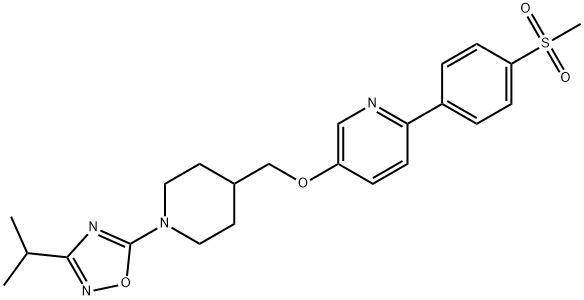
What is GSK1292263?
Biological Activity
gsk1292263 is a novel agonist of gpr119 receptor agonist and is used for the treatment of type 2 diabetes.gpr119 is described as a class a (rhodopsin-type) orphan gpcr with no close primary sequence relative in the human genome. the activation of gpr119 increases the intracellular accumulation of camp, resulting in enhanced insulin secretion from pancreatic β-cells and increased release of the gut peptides glp-1 (glucagon-like peptide 1), gip (glucose-dependent insulinotropic peptide) and pyy (polypeptide yy).in vitro, gsk1292263 treatment displayed little inhibition towards cyps (cyp1a2, 2c9, 2c19, 2d6, 3a4), p-gp, oatp1b3, or oct2. however, gsk1292263 inhibited bcrp and oatp1b1, which are transporters involved in statin disposition 1.in the glucose tolerance test in rats, administration of gsk-1292263 significantly increases the peak insulin response and insulin auc (0-15 min) as compared with the values in the vehicle control. the upregulation of insulin was found to correlate with an increase in the glucose disposal rate. in hyperinsulinemic-euglycemic clamps, gsk-1292263 administration on sprague-dawley rats at dose of 10 or 30 mg/kg 2 hours prior to insulin infusion can promote glucagon secretion with no increase of blood glucose levels 2.
References
1. polli jw, hussey e, bush m, et al. evaluation of drug interactions of gsk1292263 (a gpr119 agonist) with statins: from in vitro data to clinical study design. xenobiotica; the fate of foreign compounds in biological systems. 2013;43(6):498-508.2. zhu x, huang d, lan x, et al. the first pharmacophore model for potent g protein-coupled receptor 119 agonist. european journal of medicinal chemistry. 2011;46(7):2901-2907.
Properties of GSK1292263
| Boiling point: | 655.1±65.0 °C(Predicted) |
| Density | 1.23 |
| storage temp. | Store at -20°C |
| solubility | ≥21.1 mg/mL in DMSO; insoluble in H2O; insoluble in EtOH |
| form | solid |
| pka | 4.75±0.32(Predicted) |
| color | White to off-white |
Safety information for GSK1292263
| Signal word | Warning |
| Pictogram(s) |
 Exclamation Mark Irritant GHS07 |
| GHS Hazard Statements |
H302:Acute toxicity,oral H315:Skin corrosion/irritation H320:Serious eye damage/eye irritation H335:Specific target organ toxicity, single exposure;Respiratory tract irritation |
| Precautionary Statement Codes |
P261:Avoid breathing dust/fume/gas/mist/vapours/spray. P280:Wear protective gloves/protective clothing/eye protection/face protection. P301+P312:IF SWALLOWED: call a POISON CENTER or doctor/physician IF you feel unwell. P302+P352:IF ON SKIN: wash with plenty of soap and water. P305+P351+P338:IF IN EYES: Rinse cautiously with water for several minutes. Remove contact lenses, if present and easy to do. Continuerinsing. |
Computed Descriptors for GSK1292263
New Products
Tert-butyl bis(2-chloroethyl)carbamate 4-Methylphenylacetic acid N-Boc-D-alaninol N-BOC-D/L-ALANINOL N-octanoyl benzotriazole 3-Morpholino-1-(4-nitrophenyl)-5,6-dihydropyridin- 2(1H)-one Furan-2,5-Dicarboxylic Acid DIETHYL AMINOMALONATE HYDROCHLORIDE 1,1’-CARBONYLDIIMIDAZOLE R-2-BENZYLOXY PROPIONIC ACID 1,1’-CARBONYLDI (1,2-4 TRIAZOLE) N-METHYL INDAZOLE-3-CARBOXYLIC ACID (2-Hydroxyphenyl)acetonitrile 4-Bromopyrazole 5-BROMO-2CYANO PYRIDINE 5,6-Dimethoxyindanone 5-broMo-2-chloro-N-cyclopentylpyriMidin-4-aMine 2-(Cyanocyclohexyl)acetic acid 4-methoxy-3,5-dinitropyridine 1-(4-(aminomethyl)benzyl)urea hydrochloride 2-aminopropyl benzoate hydrochloride diethyl 2-(2-((tertbutoxycarbonyl)amino) ethyl)malonate tert-butyl 4- (ureidomethyl)benzylcarbamate Ethyl-2-chloro((4-methoxyphenyl)hydrazono)acetateRelated products of tetrahydrofuran
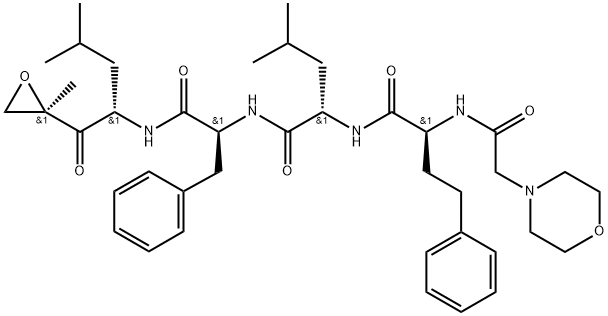
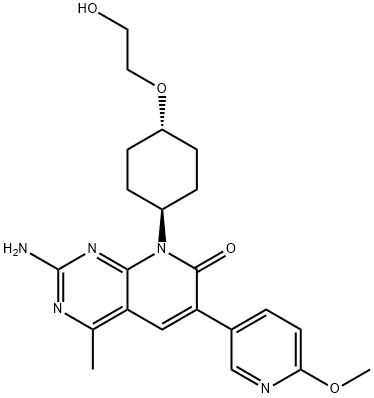

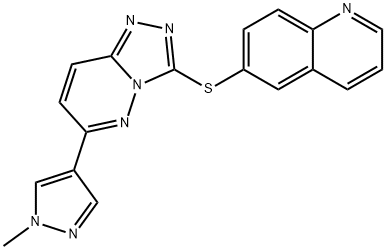
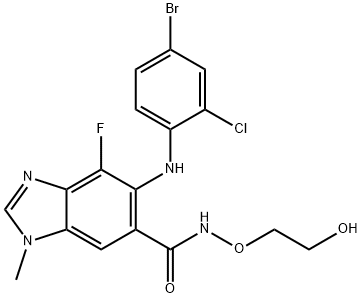
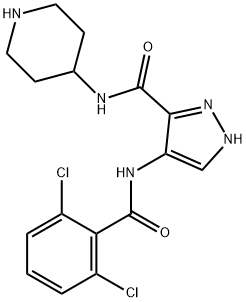
![7Methyl-5-(1-{[3-(trifluoroMethyl)phenyl]acetyl}-2,3-dihydro1Hindol-5-yl)7Hpyrrolo[2,3d]pyriMidin-4-aMine](https://img.chemicalbook.in/CAS/GIF/1337531-36-8.gif)
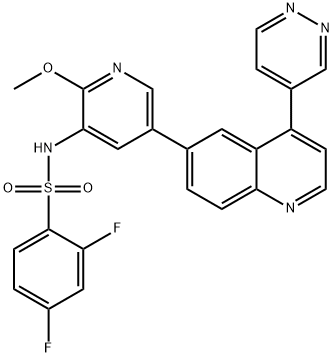
You may like
-
 2033-24-1 98%View Details
2033-24-1 98%View Details
2033-24-1 -
 1975-50-4 98%View Details
1975-50-4 98%View Details
1975-50-4 -
 2-HYDROXY BENZYL ALCOHOL 98%View Details
2-HYDROXY BENZYL ALCOHOL 98%View Details
90-01-7 -
 2-Chloro-1,3-Bis(Dimethylamino)Trimethinium Hexafluorophosphate 221615-75-4 98%View Details
2-Chloro-1,3-Bis(Dimethylamino)Trimethinium Hexafluorophosphate 221615-75-4 98%View Details
221615-75-4 -
 61397-56-6 CIS BROMO BENZOATE 98%View Details
61397-56-6 CIS BROMO BENZOATE 98%View Details
61397-56-6 -
 14714-50-2 (2-Hydroxyphenyl)acetonitrile 98+View Details
14714-50-2 (2-Hydroxyphenyl)acetonitrile 98+View Details
14714-50-2 -
 118753-70-1 98+View Details
118753-70-1 98+View Details
118753-70-1 -
 733039-20-8 5-broMo-2-chloro-N-cyclopentylpyriMidin-4-aMine 98+View Details
733039-20-8 5-broMo-2-chloro-N-cyclopentylpyriMidin-4-aMine 98+View Details
733039-20-8